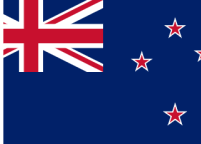1.Overview of the NZQF
The New Zealand Qualifications Framework is the national system that includes all quality-assured qualifications in New Zealand. Administered by the New Zealand Qualifications Authority (NZQA), the NZQF covers qualifications from secondary schools and tertiary educations, including universities, institutes of technology, polytechnics, private training establishments, and wānanga (Māori educational institutions).
1.1. Purpose and Objectives of the NZQF
The primary purpose of the NZQF is to ensure that qualifications are robust and provide clear pathways to education and employment outcomes. Its objectives include:
- Ensuring the quality and consistency of qualifications across the country.
- Providing a system accessible and relevant to a diverse range of learners.
- We facilitate the recognition of educational achievement and support the mobility of graduates both within New Zealand and globally.
1.2 Brief History and Development of the Framework
The NZQF, established in 1990 following the Education Amendment Act 1990, is a testament to New Zealand’s commitment to quality education. It was designed to combine various qualifications into a coherent framework. Over the years, the NZQF has evolved to include a stronger emphasis on learning outcomes, making qualifications more flexible and relevant to the needs of employers and the economy.
2. Qualifications on the NZQF
Qualifications within the NZQF range from secondary school credentials to advanced doctoral degrees. They are designed to provide clear and progressive educational pathways.
2.1. Explanation of Different Qualification Levels (1-10)
The NZQF is divided into ten levels based on complexity. Level 1 represents the most minor complex, and Level 10 represents the most complex. Each level is defined by specific outcomes relating to knowledge, skills, and competencies:
- Levels 1-3 typically cover secondary education and introductory trades training.
- Levels 4-6 include advanced trades, technical qualifications, and some undergraduate degrees.
- Levels 7-10 encompass bachelor’s degrees, graduate and postgraduate diplomas, master’s, and doctoral degrees.
Types of qualifications on the NZQF include:
- Certificates and Diplomas are typically offered at Levels 1 to 6 and focus on vocational training or preparatory education.
- Bachelor’s Degrees, Graduate Diplomas, and Graduate Certificates usually fall within Level 7.
- Postgraduate Certificates, Postgraduate Diplomas, Master’s Degrees, and Doctoral Degrees are at Levels 8, 9, and 10, representing advanced academic and professional studies.
Level | Qualifications | Credentials |
1 | Certificate | Micro-credential |
2 | Certificate | Micro-credential |
3 | Certificate | Micro-credential |
4 | Certificate | Micro-credential |
5 | Certificate Diploma | Micro-credential |
6 | Certificate Diploma | Micro-credential |
7 | Diploma Bachelor’s Degree Graduate Certificate Graduate Diploma | Micro-credential |
8 | Bachelor Honours Degree Postgraduate Certificate Postgraduate Diploma | Micro-credential |
9 | Master’s Degree | Micro-credential |
10 | Doctoral Degree | Micro-credential |
2.2 Understanding Micro-credentials in New Zealand
Micro-credentials represent a significant aspect of New Zealand’s education and training framework. They offer learners small, self-contained awards with clearly defined learning objectives. These credentials are designed to acknowledge and validate learners’ skills, experiences, and knowledge, catering to the evolving needs of employers, industries, and communities.
Key Features of Micro-credentials:
- Size and Scope: Micro-credentials typically consist of up to 40 credits and can be awarded at any level within the New Zealand Qualifications and Credentials Framework (NZQCF).
- Assessment Component: Each micro-credential includes an assessment component to ensure learners achieve the specified learning outcomes.
- Accreditation: Micro-credentials are delivered by accredited education providers, ensuring that the quality and standards of education are maintained.
- Evidence-Based Development: These credentials are developed based on evidence indicating the demand and necessity for specific skills or knowledge in the job market.
While micro-credentials are awarded as standalone achievements, many can also contribute towards a more significant qualification or programme of study. This flexibility allows learners to tailor their educational pathways to their needs and career goals.
Finding Micro-credentials:
Individuals can access the micro-credential register to explore the diverse range of NZQA-approved micro-credentials available. Check the below link to search Search NZQA-approved micro-credentials
Search NZQA-approved micro-credentials
Micro-credentials serve several vital purposes within the education and professional development landscape:
- Flexible Learning Pathways: The NZQF, with its diverse range of qualifications and micro-credentials, allows learners to acquire specific skills or knowledge without committing to a full degree or qualification. This modular approach empowers individuals to tailor their learning journey according to their unique needs, interests, and career objectives, giving them control over their educational and career paths.
- Skill Validation: Individuals can validate and showcase their expertise in specific areas by earning micro-credentials. These credentials are tangible evidence of skills, experiences, and competencies, enhancing learners’ credibility and employability in the job market.
- Career Advancement: Micro-credentials provide opportunities for career advancement by equipping individuals with relevant and up-to-date skills that are in demand by employers. Completing micro-credentials can open doors to new job opportunities, promotions, or career transitions.
- Professional Development: Professionals can use micro-credentials to continuously upskill or reskill throughout their careers, staying competitive in rapidly evolving industries. These credentials offer a convenient and efficient way to keep abreast of emerging trends, technologies, and best practices.
- Lifelong Learning: Micro-credentials promote a culture of lifelong learning by offering bite-sized learning opportunities accessible to individuals at any stage of their lives or careers. They encourage continuous learning and personal growth, fostering a mindset of curiosity and self-improvement.
- Industry Relevance: Micro-credentials are often developed in collaboration with industry partners, ensuring the skills and knowledge gained are relevant and aligned with current industry needs and trends. This industry-driven approach enhances the practical applicability and value of micro-credentials in the workplace.
Overall, micro-credentials play a crucial role in democratizing education, empowering individuals to acquire new skills, advance their careers, and adapt to the demands of a rapidly changing world.
2.2. Key Features of Qualifications Under the NZQF
The qualifications under the NZQF are known for:
- A strong emphasis on learning outcomes, ensuring that qualifications meet specific skills and knowledge standards.
- Transparency and consistency facilitate the recognition of New Zealand qualifications internationally.
- Flexibility allows for credit transfer and recognition of prior learning, which supports learners in building on previous education and experiences without unnecessary repetition.
The NZQF plays a crucial role in New Zealand’s education and training system, ensuring that qualifications meet the needs of individuals, employers, and the wider community, facilitating lifelong learning and career development.
3. Standards within the NZQF
3.1 Definition of Standards
Within the New Zealand Qualifications Framework (NZQF) context, “standards” refer to specific criteria that outline expected outcomes in terms of knowledge, skills, and competencies that learners must demonstrate to achieve a qualification. Standards are crucial as they ensure consistency and maintain the integrity of qualifications across different educational institutions and training programs.
3.2 How Standards Contribute to Qualifications
Standards form the building blocks of NZQF qualifications. They define the learning outcomes for each subject or module within a course, ensuring that all learners meet the same minimum criteria upon completion. Standards are used to design assessments that accurately measure whether students have acquired the requisite skills and knowledge at each level of their education.
Examples of Commonly Referenced Standards
Some commonly referenced standards within the NZQF include:
- Unit Standards are specific to vocational education and focus on practical skills and knowledge.
- Achievement Standards: Typically used in secondary education, these measure a range of abilities, from theoretical knowledge to practical skills.
- Competency Standards: Often found in professional qualifications, these standards assess the capability to perform specific tasks or roles within a workplace.
3.3. Process of Developing and Maintaining Standards
The development and maintenance of standards within the NZQF involve a collaborative process:
- Initial Proposal: Industry bodies, educational institutions, or professional groups propose new standards or revisions based on skills gaps or new industry developments.
- Consultation: The proposal undergoes a public or targeted consultation phase where stakeholders can provide feedback and suggestions.
- Approval and Implementation: Following consultation, the revised standards are formally approved by the NZQA and implemented across relevant courses and programs.
- Regular Review: Standards are reviewed to ensure they remain relevant and practical in light of changing industry needs, technological advancements, and educational practices.
4. Results
4.1 Understanding Assessment Results under the NZQF
Assessment results under the NZQF are determined based on the achievement of the set standards. Results are typically reported as achieved or not achieved, and in some contexts, more detailed grading may be provided.
4.2. Grading Systems and What They Signify
Grading systems within the NZQF can vary by institution and level of study. Common grading includes:
- Achieved with Excellence: Indicates a high level of understanding and application of skills.
- Achieved with Merit: Reflects a strong understanding and application, though slightly below the excellence level.
- Achieved: The student meets the essential criteria of the standard.
- Not Achieved: The student needs to meet the criteria set out in the standards.
4.3 Impact of Results on Further Education and Employment
Results under the NZQF significantly influence a student’s academic and career pathways:
- Further Education: Successful results can facilitate entry into higher levels of education, such as progressing from a diploma to a bachelor’s degree or from undergraduate to postgraduate studies.
- Employment: Employers often regard NZQF qualifications and the associated results as reliable indicators of a candidate’s skills and knowledge. Higher grades, especially in relevant standards, can enhance job prospects and career advancement.
The NZQF’s structured approach to standards and results ensures that qualifications are consistent and adaptable to changing educational and industry demands, supporting lifelong learning and career success.
5. Recognition of Overseas Qualifications
5.1 Process of Recognizing International Qualifications in New Zealand
Recognizing overseas qualifications in New Zealand aims to determine the equivalence of foreign credentials to those listed on the New Zealand Qualifications Framework (NZQF). This typically involves:
- Application: Individuals submit their qualifications and supporting documents, such as transcripts and certificates, to the New Zealand Qualifications Authority (NZQA).
- Assessment: NZQA assesses the qualification against NZQF standards, considering factors like the level, content, and learning outcomes.
- Outcome: The applicant receives a report that states the equivalence of their overseas qualification to an NZQF level and its potential usage in New Zealand.
5.2 Comparison Between NZQF and Other Qualification Frameworks
- Australian Qualifications Framework (AQF): Similar in structure to the NZQF, the AQF facilitates easy comparison and recognition of qualifications between Australia and New Zealand, supported by mutual recognition agreements.
- European Qualifications Framework (EQF): The EQF is a translation device that compares European qualifications. While the structure differs slightly, NZQF levels can often be aligned with EQF levels to facilitate recognition of European qualifications in New Zealand and vice versa.
5.3 Agencies Involved in the Recognition Process
The central agency involved in the recognition of overseas qualifications is the New Zealand Qualifications Authority (NZQA). Other stakeholders may include professional bodies for specific careers that require additional accreditation and educational institutions evaluating qualifications for admission purposes.
5.4 Common Challenges and Solutions for Overseas Qualification Recognition
Challenges:
- Differences in educational standards: Some countries have educational systems that differ significantly from New Zealand’s, making equivalence hard to determine.
- Documentation issues: Incomplete or non-English documentation can delay or complicate recognition.
Solutions:
- Thorough documentation: Encouraging applicants to provide comprehensive, officially translated documentation.
- Bilateral agreements: Strengthening agreements with other countries to facilitate easier recognition processes.
5.5 How to Apply for an Overseas Qualification Evaluation in New Zealand
Preparing for the Application
- Confirm the Type of Evaluation Needed: Based on your qualifications, determine if you require an International Qualification Assessment (IQA) or Overseas Study Assessment (OSA) and how many applications are necessary.
- Gather Required Documents: Collect the necessary documents for your application, ensuring they meet the specified standards.
- Review Terms and Conditions: Familiarize yourself with the terms and conditions of the evaluation process, including payment details and refund policies.
- Check Fees and Payment Methods: Verify the applicable fees for the evaluation and ensure you have a valid credit card for payment.
Applying for an IQA
- Create an account on the online application portal and proceed with the application process.
After Submission
- Monitor the status of your application through the online portal or by contacting the evaluation authority.
- Your application will progress through pre-evaluation, waiting for information, evaluation, peer review, and publication.
- Ensure all required documents and information are provided promptly to avoid delays or cancellation of your application.
Result of the Evaluation
- Upon completing the evaluation, you will receive an email of the outcome.
- The evaluation result will be a recognition statement indicating where your qualification aligns with the New Zealand Qualifications and Credentials Framework.
Appealing a Result
- If you disagree with the evaluation outcome, you can appeal the decision within three months of receiving the recognition statement.
- An appeal application can be submitted online for $765. However, only one appeal per evaluation is permitted.
Supporting and Follow-Up Applications
- Contact the evaluation authority for guidance if you require additional or related qualifications assessments.
- You can request add-on evaluations within 12 months of receiving your initial results.
By following these steps and guidelines, you can effectively navigate having your overseas qualifications evaluated for use in New Zealand.
6. Use of the NZQF in Different Work Visas in New Zealand
The New Zealand Qualifications Framework (NZQF) plays a crucial role in the immigration process, particularly in assessing and issuing various work visas. The framework helps Immigration New Zealand (INZ) and employers assess the qualifications of potential migrants to ensure that they meet the specific skills and competencies required for jobs in New Zealand. Here’s how the NZQF is used across different types of work visas:
6.1 Accredited Employer Work Visa
Introduced to replace various older visa categories, the Accredited Employer Work Visa requires employers to be accredited and jobs to be paid at least the median wage or higher. The NZQF comes into play when determining the qualifications necessary for the job. For roles considered skilled and where specific qualifications are needed, the NZQF level of an applicant’s foreign qualification may need to be assessed for equivalency.
6.2 Skilled Migrant Category Resident Visa
This visa category is for those with the skills to contribute to New Zealand’s economic growth. The NZQF is critical in this context, as points are awarded based on an applicant’s qualifications. Higher points are given for qualifications at higher NZQF levels, which can significantly affect the likelihood of gaining residency. NZQA must assess qualifications to determine their equivalency to NZQF levels if they were obtained overseas.
6.3 Post-study Work Visa
This visa is designed for students who have completed a qualification in New Zealand that meets the NZQF requirements. The level of the qualification (which must be Level 4 or higher on the NZQF) influences the length of the visa. This visa pathway encourages students to gain qualifications in New Zealand and then transition into the workforce, utilizing their NZQF-recognized qualifications.
7. Conclusion
Summary of Key Points Covered
- Recognizing overseas qualifications involves assessing foreign credentials against NZQF standards to determine their equivalence.
- The NZQF aligns relatively well with frameworks like the AQF and EQF, facilitating international mobility and recognition.
- NZQA is the primary agency responsible for this process, though other bodies are involved depending on the specific field.
- Common challenges include variances in educational standards and issues with documentation, which are addressed through detailed application processes and international agreements.
Importance of the NZQF in New Zealand’s Education and Employment Sectors
The NZQF is crucial in maintaining the quality, consistency, and global recognition of New Zealand qualifications, ensuring that they meet the needs of learners, employers, and the broader economy.
Future Prospects and Potential Changes in the NZQF
Future developments in the NZQF may include further alignment with international frameworks to enhance global mobility and adapt to evolving educational and professional demands. Additionally, there might be increased emphasis on integrating digital competencies and sustainable practices into qualifications to address future societal and technological changes.
Overall, the NZQF plays an essential role in upholding the standards of education and training in New Zealand, preparing individuals for effective participation in a dynamic global workforce.
Reference
About ICL Immigration
ICL Immigration, based in Auckland, is an established licensed immigration adviser and immigration consultant with over 20 years of experience and a remarkable 97% approval rate. We’ve helped over 1,000 immigrants realise their New Zealand settlement dreams.
We specialise in various visa services, including student, residency, work visas and business-related services like employer accreditation. We ensure personalised solutions for individuals and businesses aiming to navigate New Zealand’s immigration landscape successfully.














